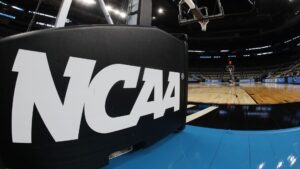NCAA’s New Transgender Policy: Unpacking the Changes and Its Implications
As we prepare for the excitement of the upcoming NCAA Tournament at PPG Paints Arena, a significant change in the NCAA’s policies regarding transgender student-athletes has emerged, stirring a national conversation about gender identity in sports. The NCAA’s recent policy update prohibits trans women from competing in women’s sports, a decision that not only aligns with political shifts following a new executive order but also raises questions about fairness, inclusion, and the future of competitive athletics.
A Closer Look at the Policy Changes
On Thursday, the NCAA declared that while students assigned male at birth are allowed to practice with women’s teams and enjoy associated benefits like medical care, they will not be permitted to compete in formal matches. This marks a stark change from previous policies that mirrored Olympic standards, where eligibility was determined by the individual sports’ governing bodies based on a range of factors, including hormone levels and transition status.
The update also closes doors for assigned female students who are undergoing hormone therapy, highlighting that they too will be barred from participating on women’s teams if they are taking testosterone. This move effectively draws a line in the sand, establishing a framework that many argue is overly simplistic in a world that increasingly recognizes the complexities of gender.
The Impact of Trump’s Executive Order
This policy shift comes directly in the wake of President Trump’s recent order to defund schools that allow trans women to compete in women’s sports. While some view this as a necessary clarification of eligibility standards, it has also been criticized as an infringement on the rights and identities of transgender athletes.
NCAA President Charlie Baker expressed a desire for uniformity in eligibility across all schools, arguing that this will mitigate the confusion caused by varying state laws and court decisions. But as Chris Mosier, a transgender triathlete and advocate, pointed out, the policy’s focus on assigned sexes at birth effectively reduces gender to a binary perspective, undermining the lived experiences of countless athletes.
Voices of Concern: Advocacy and Human Rights
The reaction from LGBTQ+ advocacy groups has been swift and pointed. GLAAD issued a statement condemning the new policy as “deeply disturbing” and criticized it for lacking an informed basis in medical and scientific expertise. Instead of fostering a safe environment for all student-athletes, such policies could potentially lead to alienation and discrimination.
As discussions around gender in sports continue, it’s crucial to remember that these changes affect real lives. Many intersex athletes and women who require hormone therapy for medical needs are caught in the crossfire of a larger political battle, further complicating the landscape of fairness and inclusion within collegiate sports.
The Future of Collegiate Athletics: A Call for Dialogue
As the NCAA navigates these contentious waters, it raises important questions about the future of athletics. Will this policy successfully create a level playing field, or will it further exacerbate divisions within collegiate sports? At Extreme Investor Network, we believe that dialogue and education are essential as we move forward, advocating for a fair and inclusive approach that respects both the rights of athletes and the integrity of competition.
As these developments unfold, we will continue to provide insights and updates on this critical issue. In a world that’s rapidly changing, understanding the intersection of sports, identity, and policy will be paramount in shaping a future that honors the spirit of competition for every athlete. Stay tuned for more discussions and in-depth analyses on pressing business and societal issues here at Extreme Investor Network.

